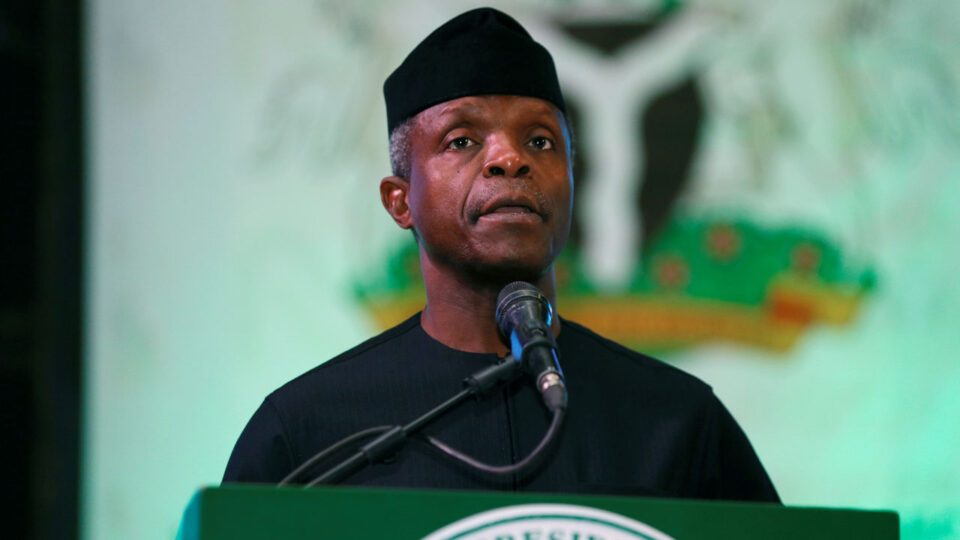Angela Mbaocha, Abakaliki
Vice President Professor Yemi Osinbajo, has revealed that corruption, poor governance and weak institutional capacity are the causes of poverty in Nigeria and in other resourceful countries of the world.
Osinbajo, stated this during a one day working visit in Ebonyi State, at the 21st edition of the Joint Planning Board, JPB/National Council on Development Planning (NCDP), meeting held at the new Executive Council Chambers, Abakaliki.
He noted that a country can have the whole natural resources in every local government area and even well educated workforce, and still fail and social services poorly delivered when it has weak and corrupt institutions.
The Vice President stated that council on development planning has remained a very important platform for setting the tone of national development, adding that the platform provides opportunity for federal and state governments to fathom out active collaboration for the wellbeing of our people.
Adding, “The need for synergy among all tiers of government at this critical time , especially as we continue to face the challenges of the of the onslaught of COVID-19 pandemic, which is now compounded by the ongoing war between Russia and Ukraine has already led to price and supply shock, especially in food. We must brace ourselves to collectively respond to the inevitable economic challenge that will occur and some which are already occuring.
“Let me take this opportunity to congratulate the council, federal ministry of finance, budget and national planning, federal and state MDAs and all stakeholders and indeed the private sector and he civil society for the sterling work that has been done in articulating a national development plan 2021-2025.
“The strategic objective of the national development plan include establishing a strong foundation for a diversified economy, investing in infrastructure, improving government and stamping out insecurity. All of which would contribute to achieving our national development aspirations.
“The content of the plan is as important as the process that which it was developed. And I find the extensive deliberations and contributions to fashion a medium term blueprint . But the implementation of the plan is the crux of the matter and this speaks of the relevance to the theme of the meeting
“Good Governance and Institutional Capacity: Pathways to Sustainable National Development.
“The question I am sure some of us asked ourselves is that why country with huge natural and human resources still developed slowly and have greater number of poverty than other less endowed society or country without resources at all like south Korea and Singapore. Why do they still perform better than than the resourceful country of the world?
“I think most of the surveys conducted show that there is lack of good governance and weak institutional capacity that largely account for the difference .
“How public institutions function is of course an approach determined by institutional capacity . But this is not merely having a merely educated and well motivated workforce. But a system that can enforce transparency and accountability. You must have a system that can deliver on transparency and accountability.
“So even when a country has the whole natural resources in every local government area and even well educated workforce, a country can still fail and social services can still be poorly delivered. An extreme poverty can prevail.



